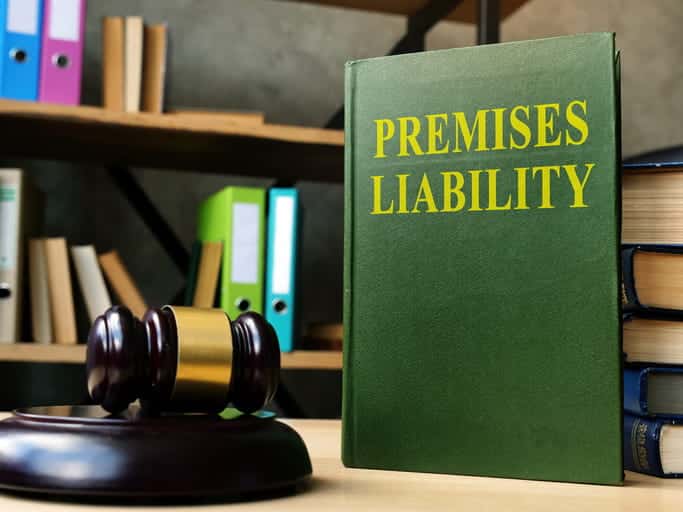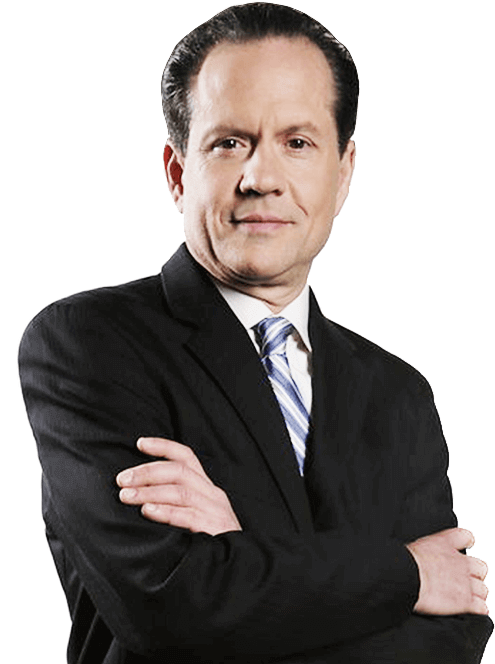
If someone’s property is dangerous, and you get hurt, do they have to pay? Premises liability is the law that may allow victims to claim compensation if they’re injured on dangerous property. There are various rules and standards that determine whether the property owner is liable.
Our Florida premises liability attorneys define premises liability and explain what you need to know when you’re hurt on someone else’s property.
Contact our team today to schedule a free consultation.
Understanding Premises Liability
What does liability mean when you have an accident on a property that is not yours? When someone has a dangerous condition on a property they own or manage, the legal liability that they have is called premises liability. The victim may claim compensation based on premises liability if a dangerous condition on the property causes an injury.
The legal premises liability definition is the idea that a property owner is responsible for keeping their property safe for others. The law sets the standard for how the owner needs to maintain the property and the warnings they need to give occupants about dangers.
To define unsafe, it means an unreasonably dangerous condition. When it causes an injury to a victim, the property owner may be responsible for paying compensation.
What Are the Most Common Premises Liability Claims?
Common premises liability claims include:
- Spills on the floor or the ground
- Broken stairs and escalators
- Inadequate hand railings
- Objects left in the path
- Debris and broken sidewalks damaged asphalt in a parking lot
- Poor lighting
- Objects falling from overhead
- Electrical dangers
- Fires
- Holes in the ground or walkway
- Unrestrained dogs and other animals
What Are Florida Premises Liability Laws?
Florida premises liability laws come from common law as well as from Florida statutes and define liable parties after these types of accidents. The general rules are outlined in common law, while Florida statutes modify and add nuance to the common law.
Florida Premises Liability Common Law
The person in control of the property may have premise building liability based on unsafe conditions on the property. However, the standards are not all the same in all circumstances. Whether there is legal liability depends on the reason the person is on the property:
- Business invitee/Public invitee – A business invitee meaning is someone who enters another person’s property for business dealings with the property owner. A public invitee definition is a person lawfully permitted to enter land as a member of the public. The land must be open to the public. (Post v. Lunney, 261 So.2d 146 (1972)1.) Since the property owner benefits from the transaction with the invitee, they have the highest duty of care to keep the property safe for those who come to it. They must keep the property reasonably safe and warn of concealed dangers. (Levy v. Home Depot, Inc., 518 So.2d 941 (Fla. 3d DCA 1987)2.) Businesses should also carry premises liability coverage.
- Social visitors/Licensees – Social guests may include friends visiting someone else’s property or a neighbor stopping by. The property owner should provide a warning about dangerous conditions that they are aware of. (Stewart v. Texas Co., 67 So.2d 653 (1953)3.)
- Trespassers – A trespasser enters someone else’s property without permission. Liability to trespassers only exists in limited circumstances when specific conditions are present.
Florida Premises Liability Statutes
Florida premises liability laws are found in Florida Statutes Chapter 768, Negligence4. Our premises liability attorneys break it down here:
- § 768.0705 – Convenience stores that comply with certain security requirements have a presumption against liability for criminal acts of third parties on the property
- § 768.075 – Defendants are not liable to trespassers who are under the influence of alcohol or a chemical substance, except for gross negligence or intentional misconduct
- § 768.075 – Defendants are generally not liable to undiscovered trespassers. Discovered trespassers must be warned of dangerous conditions that they may not be aware of. Gross negligence and intentional misconduct towards a discovered trespasser are not allowed.
- § 768.075 – Florida common law attractive nuisance rules apply
- § 768.0755 – To receive compensation for a fall from a substance on the floor, the victim must prove that:
- The defendant had actual knowledge of the condition, OR
- It was there for long enough that they should have known about it, OR
- The condition happened regularly and was therefore foreseeable
What Is the Statute of Limitations for Premises Liability in Florida?
In Florida, the statute of limitations for premises liability is four years. A victim must begin their claim with a legal filing by the end of the time limit to pursue compensation.
Is the Property Owner Liable if You’re Hurt on Their Property?
Whether a property owner is liable if you’re hurt on their property depends on why you’re on the property. An owner has the highest duty to someone they invite on the property to conduct business. On the other hand, they are not likely to be liable to a trespasser. Liability depends on the reason for the dangerous condition and whether it is the cause of injuries.
What Is the Attractive Nuisance Doctrine in Florida?
The attractive nuisance doctrine in Florida requires a property owner to take extra care to be careful when there are things on their property that may attract a child. Things like swimming pools, gravel pits, hot tubs, and even empty refrigerators may pose particular dangers.
A property owner may be liable if they allow access to these dangers and a child gets hurt. (See Florida law § 823.085 – Refrigerators, other appliances, and airtight containers are an attractive nuisance and a menace to the health and safety of children.)
How Can a Lawyer for Premises Liability Help Me?

A premises liability lawyer can define liability insurance, premises liability, negligence, and other legal terms in a way you can understand. They can help you determine if there is legal liability to form the basis of a claim.
If you qualify for financial compensation, your premises liability lawyer can help you bring your claim. To receive compensation, you must prove legal liability, the connection to the accident, and the amount of payment you deserve for your damages. A lawyer can assist you with all these steps.
Don’t wait to file your premises liability claim. Call us now to see how we can fight for justice and get you the compensation you need now.
Sources:
1Post v. Lunney, 261 So.2d 146 (1972)
2Levy v. Home Depot, Inc., 518 So.2d 941 (Fla. 3d DCA 1987)
3Stewart v. Texas Co., 67 So.2d 653 (1953)
About Jack G. Bernstein Esq.
Personal Injury Lawyer

For more than 40 years, personal injury lawyer Jack G. Bernstein has protected the rights of individuals who have been injured in a variety of circumstances. Throughout his career, Bernstein has been a strategist thoroughly dedicated to the idea of protecting the rights of his clients. Mr. Bernstein is a member of the Florida State Bar Association, the Hillsborough Bar Association and the Clearwater Bar Association.
Mr. Bernstein has the experience and expertise to handle a wide range of injury cases. Among the types of plaintiffs Mr. Bernstein represents are individuals involved in car accidents caused by drunk drivers or other exhibiting negligence, medical complications resulting from carelessness caused by a physician or a medical facility, including brain injury, bicycle, motorcycle, moped and truck accidents, admiralty law and cruise ship accidents, accidental drownings, all types of wrongful death lawsuits, along with most injury, catastrophic occurrences and legal malpractice issues.
Our firm handles every type of personal injury and accident case, using negotiation and litigation tactics effectively. We handle cases throughout Tampa, Sarasota, St. Petersburg, and Clearwater, FL. With a staff of approximately 40 people, including six lawyers and 34 support personnel, we have the legal resources to get the justice you deserve and the maximum recovery for your losses. Schedule your free consultation today; we are always here to help.
Free Case Evaluation
No Fees Unless We Win
No upfront fees, no risk, and no out of pocket cost to you or your family.
Entirely confidential – we respect your privacy, consultations are privileged.
